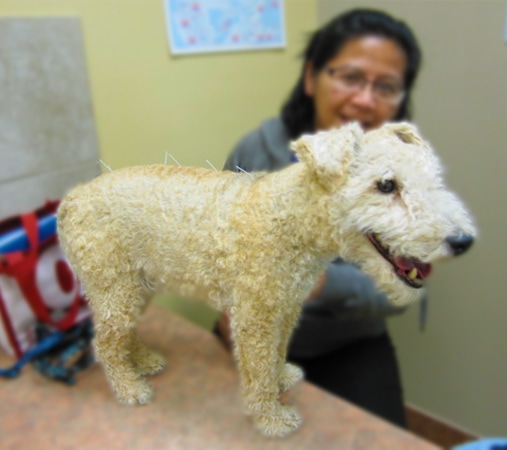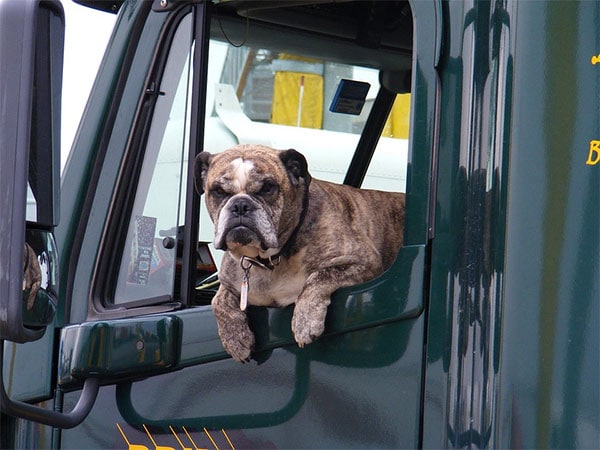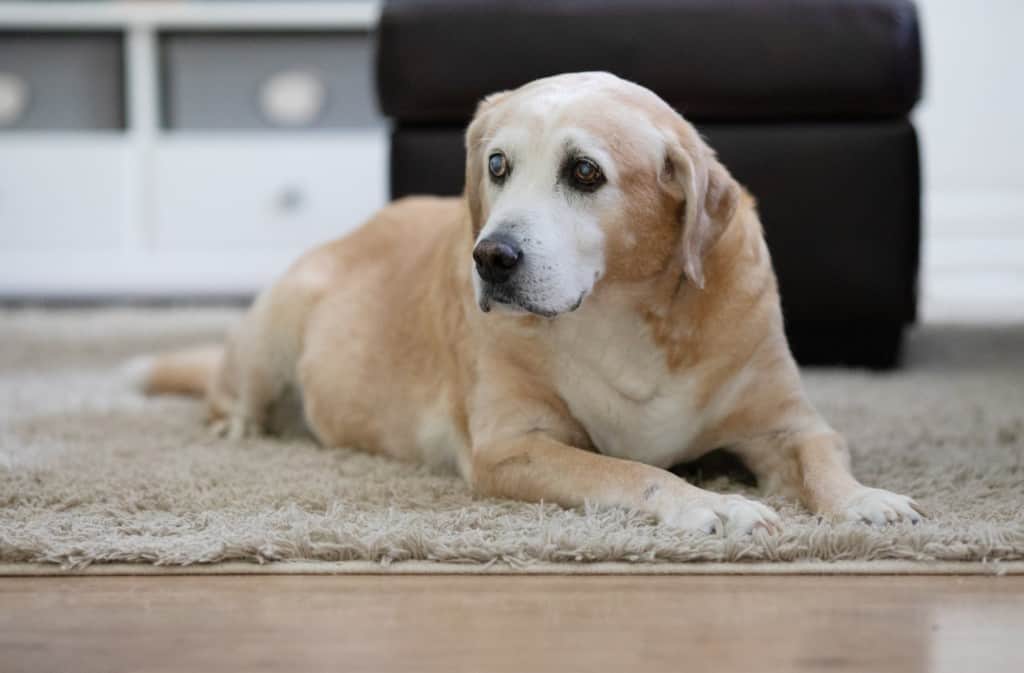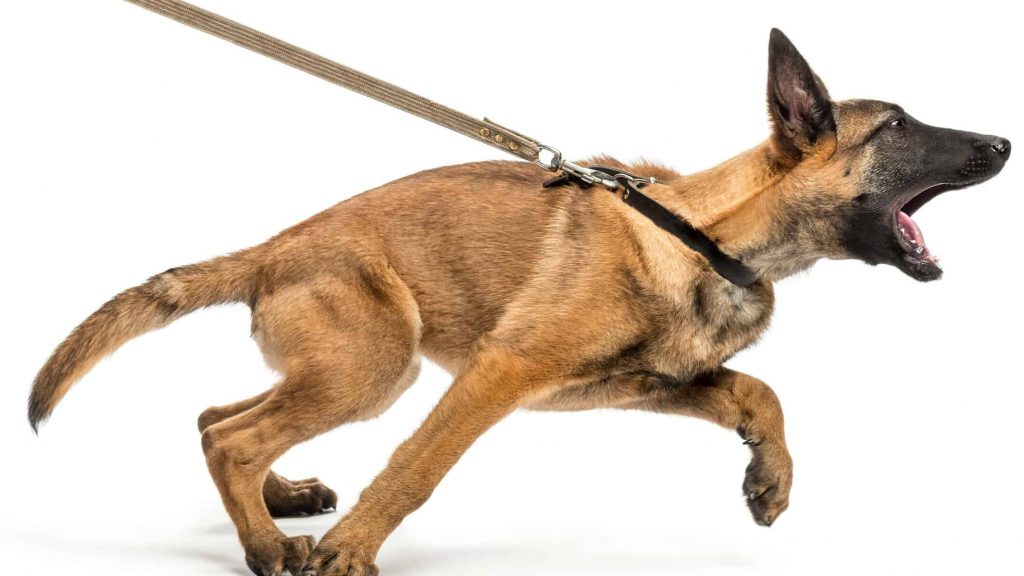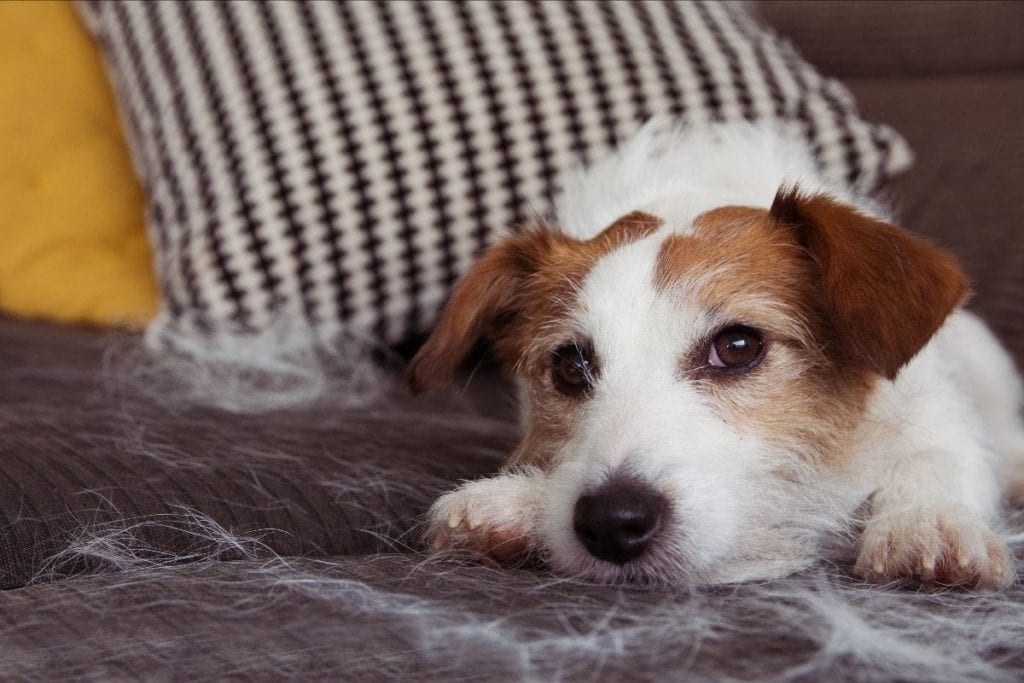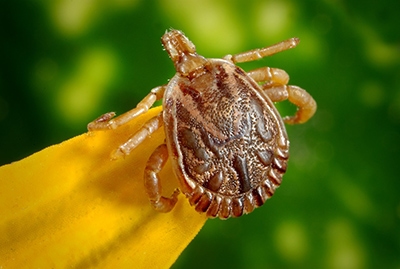By Dr. Angela Gaeto, DVM, of the Helen Woodward Animal Center community in San Diego County.
What is it and how does it work?
Acupuncture is a system of Chinese medicine that revolves around the idea that there is a system of meridians that run through the body. Meridians can be thought of as highways through which energy flows. Sometimes these highways have blockages that cause local or systemic problems. Acupuncture uses needles inserted in specific points through the body to alleviate these blockages.
Things to treat with acupuncture
Acupuncture was the only system of medicine used in China for thousands of years and therefore it was designed to treat all types of ailments. However in modern times and in dogs in particular there are more common types of conditions that are treated via acupuncture. Some dogs cannot tolerate or do not respond well to traditional pain treatments. Over time dogs can become resistant to medications. Pain is also best treated by multiple modalities. Therefore pain is one of the best things treated by acupuncture. This involves pain from chronic or acute conditions from arthritis, ligament, or soft tissue injuries, to wounds or traumatic injuries. Acupuncture can help improve healing both before and after surgery and throughout healing for musculoskeletal injuries. Acupuncture can also help treat nausea, allergies, and gastrointestinal upset. There are few limits to what acupuncture can treat.
Process of acupuncture treatment
Every clinician approaches medicine from a different standpoint but the process of acupuncture treatment is generally similar. The initial treatment involves finding out as much about the history, symptoms and behavior of a dog as possible. From there a treatment plan is decided upon using several different modalities. This can involve needles, herbs, massage, and electrical stimulation. When needles are used it is best to see how a dog responds to their use. Calmer dogs can have needles left in for a set period of time. Dogs with more anxiety can have needles placed and removed immediately. More anxious dogs tend to become accustomed to the therapy and respond well because it relieves their symptoms. A typical treatment plan involves multiple days of treatment but will be varied based on symptoms and response to therapy.
Photo Credit: Rhona-Mae Arca (CC)

